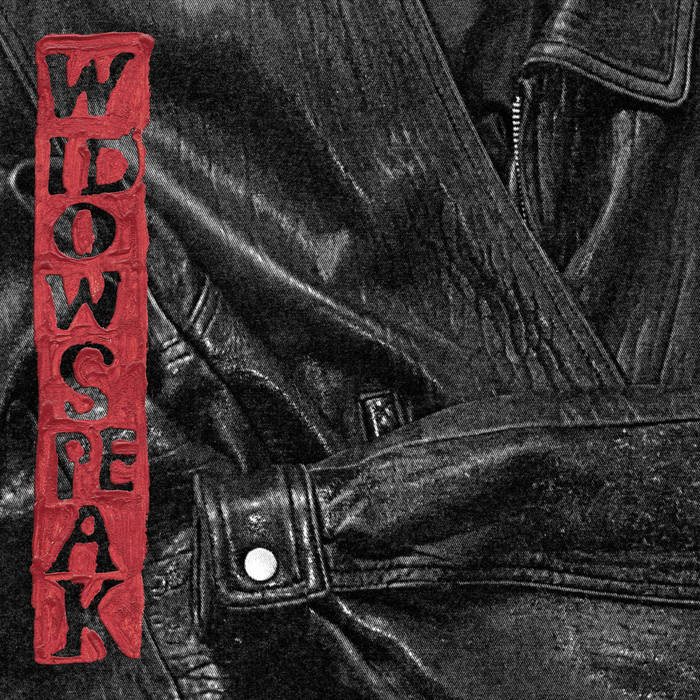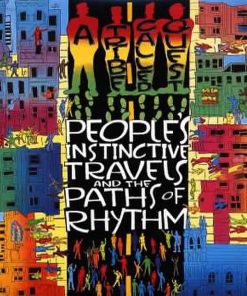Widowspeak – The Jacket LP Captured Tracks
$ 22,98 Original price was: $ 22,98.$ 13,79Current price is: $ 13,79.
Widowspeak’s sixth album started out with loose strings of a concept, a story about a fictional band:
A chain-stitcher working in the satin district of an unnamed city, a neighborhood of storefront tailors devoted to elaborate costumery for country-western, art rock, ye-ye cover bands that populate the street’s bars after dark. The narrator joins one such outfit, “Le Tex” and feels a sense of belonging and momentum, movement beyond what was previously a stable, predictable life. A relationship with a bandmate materializes. Eventually, the group start to write originals. They generate goodwill and momentum, and venture out on the open road seeking new opportunities beyond what the satin district can offer. But the vibrational energy that got things moving is the same that shakes the whole thing apart: the relationship, and the band, disintegrate upon finally reaching their destination, the end of the road. The chain-stitcher heads back to the city, settling back into the rhythm of work, old standards and a familiar place. The story is self-referential on purpose: it speaks to the absurdity of ego, codependency and shared visions even as it celebrates them. The Jacket finds Widowspeak navigating these contradictions, and although it’s ten tracks now trace a more abstract arc than the campier initial concept, strands of that earlier narrative remain: “stitches in satin”, American cities after dark, glimpses of the open road, dark bars, and backstages where things get left behind. The resulting album is a wizened meditation on performance and past lives from a band who’ve seen their fair share, hitting their stride now over a decade in. Written in the months before and after the release of their critically acclaimed fifth album Plum, The Jacket feels like a full-circle moment for the duo of singer-songwriter Molly Hamilton and guitarist Robert Earl Thomas. Thematically, it considers Plum’s broader questions about the values ascribed to one’s time and labor through the more refined lens of performance and music-making. This is due in part to the band’s recent return to New York City, the site of their own origin story, where they recorded The Jacket at the Diamond Mine with co-producer and noted Daptone Records affiliate Homer Steinweiss. In addition to Hamilton and Thomas on guitars, the album features founding drummer Michael Stasiak, as well as J.D. Sumner on bass, and piano and keyboard contributions from Michael Hess. Reunions always breed reflection, and Hamilton admits that much of the abandoned thematic concept is still inherently true, tied to formative experiences in the band’s own early years with removed observation. Tracks like “While You Wait,” “Sleeper,” “Slow Dance” trace the rise and fall of a western-tinged outfit from the perspective of an unreliable narrator, amid the fracturing of personal relationships and shifting expectations. Some songs speak to the process of moving on (“Unwind”, “Salt”), while others muse about regret (“True Blue”, “Forget It”). The album’s namesake track considers the literal and figurative costumes we dress our personalities in: imbued with meaning and sense of time and place, becoming so representative of who we think we are before they’re ultimately left behind. Elsewhere, Widowspeak question the very concepts of performance and ambition (“Everything is Simple,” “The Drive”), weighing the relentless rolling of a stone against the worth of growing just a bit of moss. The symbolic spaces of work, music, nightlife are seen through the haze of recalling one’s own unknown legends. Sonically, The Jacket finds the band at their usual and best: the album breathes deeply, balancing moments of open lushness with a straightforward, Velvets-y approach. Dynamics shift seamlessly between gentle, drifting ballads and twangy jams, built up from layered guitars, dusty percussion and ambling bass lines. Elsewhere: whimsical flutes, choral textures, and basement organs. Thomas’s guitar playing is as lyrical and emotive as it’s ever been, and Hamilton’s voice: comfortable and effortless. This seamless dynamic is amplified perfectly in the mix by Chris Coady (Yeah Yeah Yeahs, Beach House). The band still wears the same perennial influences on it’s sleeve: cornerstones like Yo La Tengo, Neil Young, Cowboy Junkies, Cat Power, and Richard and Linda Thompson. They expertly pepper in slow-core, dream-pop, pacific northwest indie, and outlaw country, resulting in a 60s-meets-90s aesthetic. But the duo also wield their own aesthetic feedback loop as a tool of it’s own, a way to better tell multi-layered stories in their own RIYL language. This sense of sonic nostalgia adds another layer to lyrics that reflect on old selves, invented and true. The Jacket is a present and comfortable record, imbued with a sense of collective pause and the ease of a band at the top of their game. For all it’s familiar textures, it still feels entirely fresh within that canon: proudly a guitar record, a rock record, a songwriter’s record. A Widowspeak record.
Fast Shipping and Professional Packing
We offer a broad range of shipping options due to our long-running partnerships with UPS, FedEx and DHL. Our warehouse employees will pack all goods to our exacting requirements. Your items are carefully inspected and secured properly prior to shipping. We ship to thousands of customers every day from all over the world. This demonstrates our dedication to becoming the largest online retailer in the world. Warehouses and distribution centres can be located in Europe as well as the USA.
Note: Orders that contain more than one item will be assigned a processing date depending on the item.
We will carefully examine all items before sending. Today, the majority of orders will be shipped within 48 hours. The expected delivery time will be between 3 and 7 days.
Returns
Stock is dynamic. It's not completely managed by us, since we have multiple entities, including the factory and the storage. The actual inventory can fluctuate at any time. It is possible that the stocks could be depleted after your order has been processed.
Our policy lasts 30 days. If you haven't received the product within 30 days, we're not able to issue a refund or an exchange.
To be eligible for a refund the product must be unopened and in the same state as when you received it. The item must be returned in its original packaging.
Related products
Vinyl
Vinyl



































